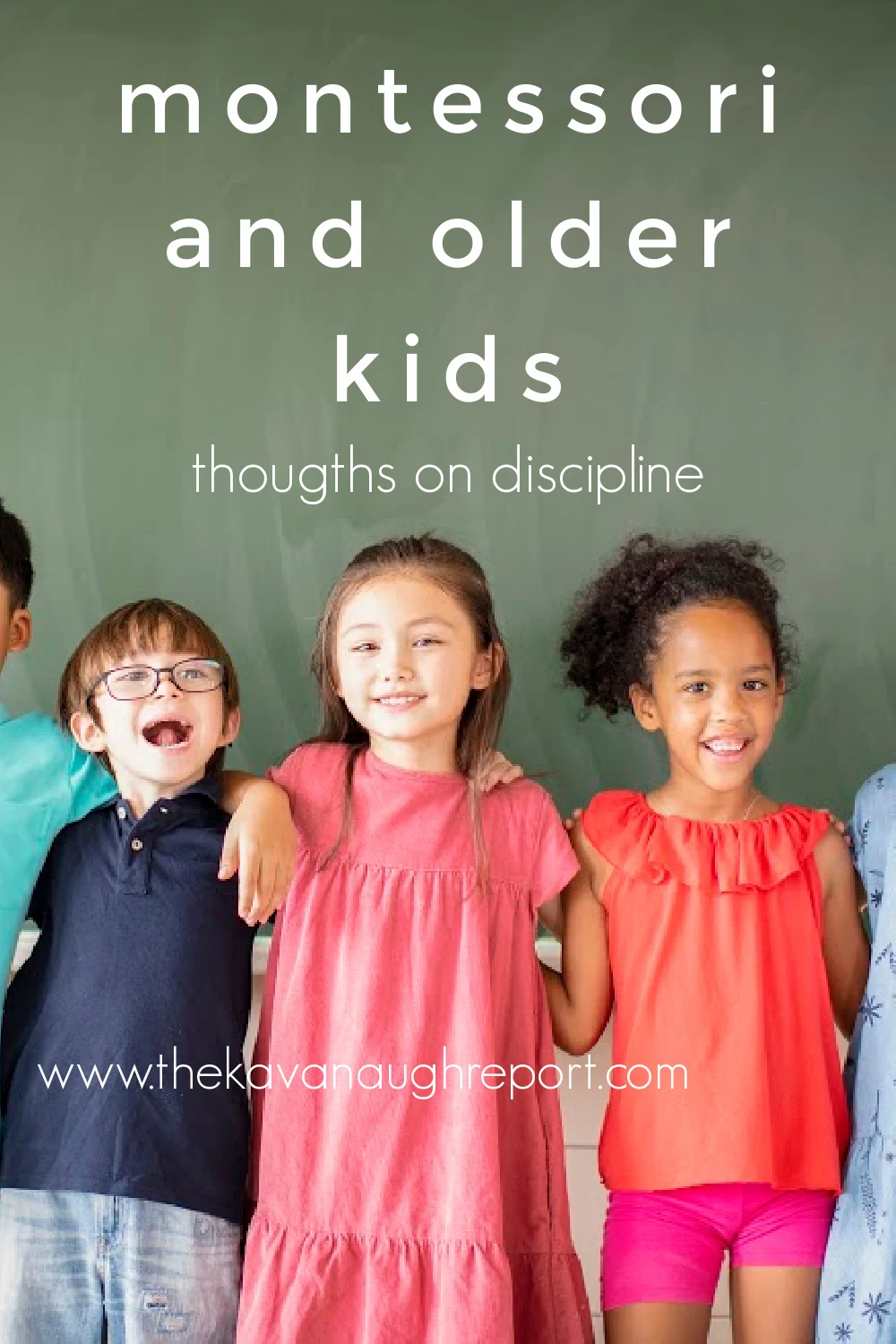As parents, I think we all expect the toddler and maybe even the preschool years to be full of challenging moments. We expect big feelings, impulsive behavior, and the need to set gentle but firm limits. But, I think it’s also quite common for us to expect that by elementary school a lot of these problems are behind us. These are “big” kids. These are kids that can listen, that can understand rules, and remember expectations. And sometimes we end up being really disappointed when that’s not quite reality.
This post contains affiliate links at no cost to you.
Montessori on Second Plane Kids
Let’s look at what Maria Montessori said about children in the second plane. I've taken a few quotes from a couple of books that focus on ages 6 to 12. First, here are a few of Maria's thoughts from To Educate the Human Potential:
“Whatever is presented to him must be beautiful and clear, striking his imagination. Once this love has been kindled, all problems confronting the educationist will disappear.”
"An inner change has taken place, but nature is quite logical in arousing now in the child not only a hunger for knowledge and understanding, but a claim to mental independence, a desire to distinguish good from evil by his own powers, and to resent limitation by arbitrary authority."
“Our teaching must only answer the mental needs of the child, never dictate them. Just as a small child cannot be still because he is in need of coordinating his movements, so the older child, who may seem troublesome in his curiosity over the what, why and wherefore of everything he sees, is building up his mind by this mental activity, and must be given a wide field of culture on which to feed.“
"Here we may usefully call to our aid some myths or fairy-tales, but they must be such as symbolize truths of nature, not the wholly fantastic."
And these from her book From Childhood to Adolescence:
“The child must exercise a constant watch over his own activities."
“The children become accustomed to greater challenges of a more serious and a harder form of life. While the younger child seeks comfort, the older child is now eager to encounter challenges. But these challenges must have an aim.”
"But the adults find this being, newly born to the world, a bit annoying."
So breaking this down a bit. One, second plane children can be annoying. She also at one point calls them rude. They are still little, they are still learning, and they are not mini-adults. Two, they are up for new challenges but only when they under the context of why and how. They need to know more, they want more! Three, they live for the dramatic. They need to see and feel things with their imagination.
Discipline
So, how practically does this effect our discipline as Montessori parents? We have to remember these three principles in all our interactions with second plane kids!
Expectations. First, we have to adjust our own expectations. We always need to remember to keep our expectations reasonable. We can’t expect perfection. Their job is to ask why, and how. They need to figure out social rules and how it all works. Everyone is much happier if we don’t expect perfection.
Challenges and Context. Two, we also have to remember that these kids are often ready for big work and more responsibility. But we can’t give this responsibility in isolation. We have to get buy in from this age group, they need to know why it’s important and why we are asking something of them. This context is essential for compliance. We have to remember they need the aim.
Harness their Imagination. You can’t just tell them the rules, or show them the rules, you have to get dramatic. Appeal to their imagination and tell stories. Use stories to your advantage and they are much more likely to be interested, remember, and learn.
Have you seen some of these shifts in your older children?
---



